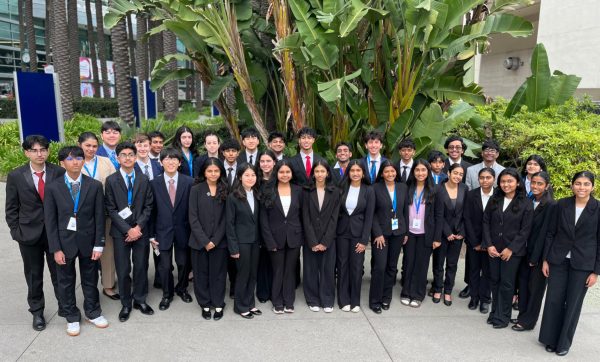I Caught Senioritis Freshman Year
Senior Tyler McNierney is also very excited to grab a sandwich at Chick-fil-A at an undisclosed period.
“I caught senioritis during freshman year!” says generic highschool student while they proceed to complain about their grades and worry about their standardized tests. I would encourage everybody repeating this very phrase to consider their own self respect with great scrutiny. Your classmates don’t care that you don’t care, so there’s no point in advertising it. Also, this statement just doesn’t make sense, because senioritis isn’t real. Students never stop caring about learning, ever. Never ever.
Hold on for a minute as I explain this bold statement. I would like you to understand that I am not without traces of symptoms: I myself have looked into the mirror and asked “Why? Nothing matters anymore.” However, we must remember that while this may be the case for schoolwork specifically, it falls apart when you apply it to everything. When you think nothing matters anymore, you also realize that some things matter more than others. Senioritis is not the syndrome of not caring, but rather a case of extreme prioritization. No longer do students fear the condescending grade system ruining their chances of admission to [insert school here]. Instead they prioritize their classes according to subjects that they find valuable, because they know high school grades carry minimal importance for their future. Students afford to take time from other classes to spend on the subjects that will help them later in life, for example focusing on math as a math major, or focusing on bio for a biology major.
Parents and educators connect this anomaly with a vague sense of teenage laziness, because they assume for some reason that students don’t care about anything as they realize high school is ending. But there is a rational reason for this phenomenon. Many students who try to excel in school are driven by maintaining their grades, because that is the most emphasized unit of measure for academic achievement. When the importance that grades carry is taken away, students’ true subject preferences are revealed. Rather than worrying about which classes “will get me into school x,” it becomes “what will help me during my time in school x.” Of course, in an ideal world, students would still be eager to attend class whether or not there are standards for grades. But the reason why this doesn’t happen has an easy answer that is firmly grounded in reality: classes are not engaging, and often struggle to even teach the students what they aimed to learn in the first place. Simply labeling this change in effort as “laziness” reflects lack of effort in properly characterizing it. The drop in motivation among seniors is not a bout of laziness but a reflection of the priorities of each individual student in what classes they are willing to stick with to learn what they can. Even the exception of the student who cuts class nearly every day to get Chick-fil-A is a reflection of priority. Class material is so meaningless to them that when the expectations for grades and scores are removed, there is no motivation for students to attend school.
Wilcox senior Vinayak Gajjewar reciprocates the idea of a change in priority. When asked about his own experience with senioritis, he confessed that “It has affected my work ethic in some classes.” He explained that many of the AP classes that he wished to succeed in became a greater priority to him than his other classes, once grades lost their significance. “CompSci and Calc I’m super motivated to do, Lit I’m like ehhh, and EnviroSci I’m like nah. It’s like major dependent.”
When I myself came to this realization, instead of working less overall I worked harder on a few select classes. I realized that the school that I was entering was competitive and the coursework would be hard. Therefore, it only made sense to capitalize on the time I had now, and try my best so I would be prepared for the future. Though these sentiments would not necessarily be the same for everybody, they reflect a reaction contrary to the normal stereotype of the lazy senior. After talking to my peers I realized that like me, many seniors are preparing for the classes that mean most to them—Econ for Econ majors, Calc and CS for computer science majors, and Stats for data science majors.
I don’t feel relaxed, I feel relieved. No longer is there the fear of having to go above and beyond for every class in my schedule. Although I still try, this priority change creates a more relaxing school environment that lets me concentrate on learning rather than keeping up my grades by wading through pools of busy work.
So underclassmen, don’t wait for the illusion of the senior year oasis; for me it never came. Make the most of your work now, because unlike a relaxing second semester before going to college, applying and graduating is real and fast approaching. Senior Vinayak has one last thing to say for those who claim to have early onset laziness: “That’s just bad study habits. That’s being a bad student. That’s because there is always something at stake.”






